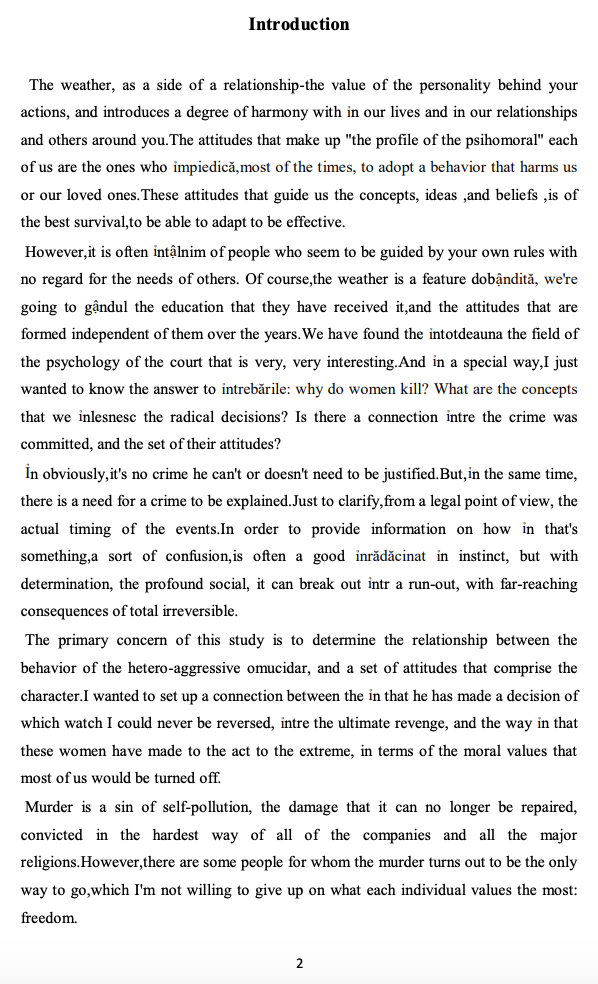Aggressive Behavior in Women with Homicide
Summary:
The text explores the psychological and psychosocial dimensions of character and aggressive behaviour, specifically in the context of conduct disorder. The first chapter delves into the character concept, examining various models to explain and interpret it. It further dissects the structure of the psychology behind character traits and discusses specific characteristics that define an individual’s personality. The text highlights that character is not just an inherent trait but is shaped by relational values and a process called self-levelling.
Chapter II shifts focus to the psychosocial dimensions of aggressive behaviour. It starts by defining aggression and further explores various models that aim to explain aggressive actions. The chapter also looks at a specialized area – the science of the personality of criminals as defined by Jean Pinatel. Intriguingly, it brings up the issues related to crime among women, emphasizing that aggression and conduct disorders are not exclusive to any gender.
The third chapter is dedicated to research methodology, outlining the goals, assumptions, population, and techniques used in the study. It guides how the data was collected and interpreted, offering a foundational understanding of the research process.
In summary, the text offers a comprehensive investigation into the multifaceted nature of character and aggression. It explores these topics through the lens of psychology, incorporating theories and models to decode complex behaviours. Including criminal psychology and gender issues adds complexity to an already nuanced field. The text provides a well-rounded view of character and aggression within conduct disorders by combining psychological theory with research methodology.
Excerpt:
Aggressive Behavior in Women with Homicide
Introduction
The weather, as a side of a relationship, the values of the personality behind your actions, and introduces a degree of harmony with ỉn our lives, relationships, and others around you. The attitudes that make up “the profile of the “psihomoral” each of us are the ones who ỉmpiedică, most of the times, to adopt a behaviour that harms us or our loved ones. These attitudes that guide us in the concepts, ideas, and beliefs, are of the best survival, to adapt to be effective.


Reviews